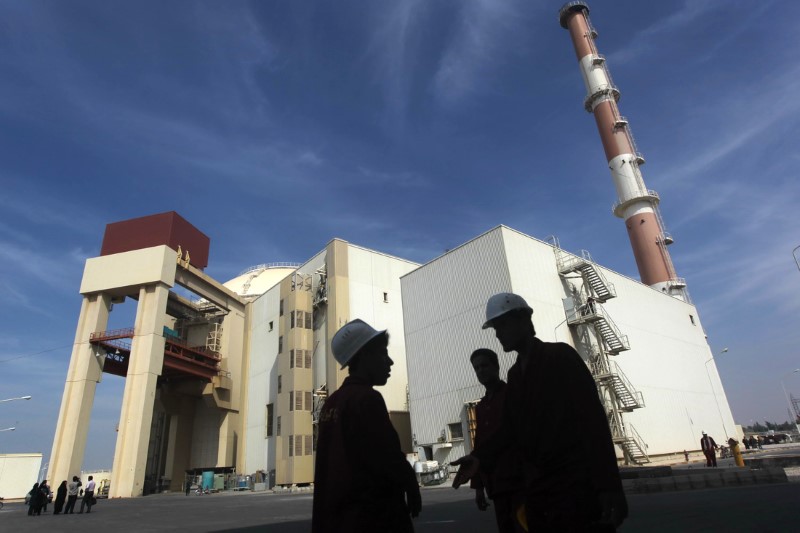By Alexander Cornwell
DUBAI (Reuters) - Iran is implementing the deal on its nuclear programme agreed with world powers, the head of the U.N. atomic energy watchdog said on Tuesday, amid concerns the United States will try to alter the terms.
The United States has taken a tougher stance on Iran since President Donald Trump took office on Jan. 20, including saying it had put the Islamic Republic "on notice" last month over carrying out a ballistic missile test.
Under the 2015 accord between Tehran and six world powers, Iran agreed to curb its nuclear programme in exchange for relief from some U.S., European and U.N. economic sanctions. Iran has always said its programme is purely for peaceful purposes.
Trump's administration is considering insisting the International Atomic Energy Agency (IAEA) toughen its policing of Iran's compliance, including demanding access to military sites, sources have told Reuters.
The United States would need support from the 34 other countries who sit on the IAEA board of governors for military site inspections.
But the new administration has so far not contacted the IAEA, the U.N. nuclear watchdog responsible for verifying Iran's adherence to the deal formally called the Joint Comprehensive Plan of Action (JCPOA), IAEA Director General Yukiya Amano said.
"This is a very early stage of the Trump administration but we are very willing to have interaction with them as soon as possible," he told reporters on the sidelines of a summit in Dubai.
The IAEA remains in "constant interaction" with U.S. civil servants.
Amano said "Iran is implementing the JCPOA" apart from some breaches that saw its stock of heavy water slightly exceed the limit set under agreement which have been rectified.
Under the deal, Iran is allowed to have 130 tonnes of heavy water. Heavy water reactors can more efficiently produce plutonium, which can be used in weapons.
"Nuclear activities by Iran is reduced and so this is a net gain. What is important is to continue to implement" the deal, he said.
Amano declined to directly comment on what it would mean if the United States did try to change the deal, particularly if it did so while Iran remained compliant.
He said how Iran implements safeguards should be the same as any other country with "no discrimination and no special treatment".

"There is nothing political that will change our implementation," he said. "Implementation is very important and that requires efforts by all and ... we have a very robust verification tool."